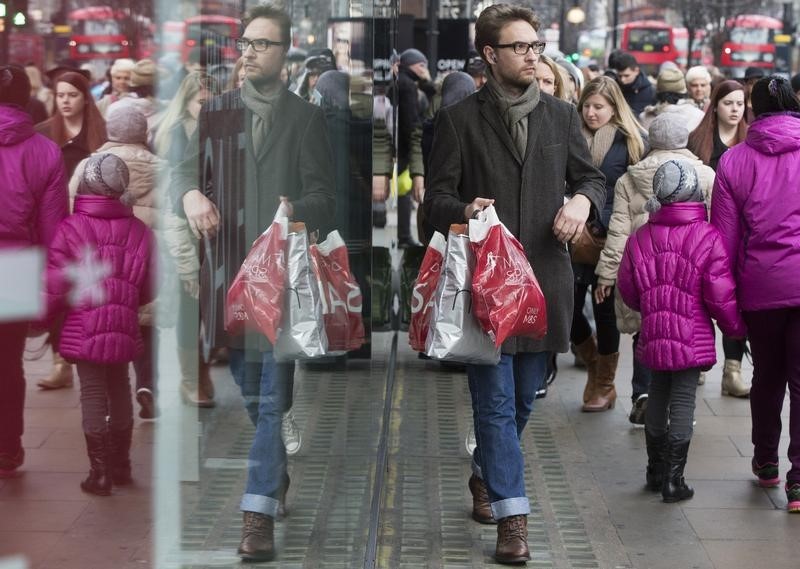By Ana Nicolaci da Costa and William Schomberg
LONDON (Reuters) - British retail sales edged up in August but their still sluggish pace added to signs that overall economic growth slowed in the third quarter, leaving the Bank of England under no pressure to speed up its debate on when to raise interest rates.
Retail sales volumes rose 0.2 percent on the month, as expected, after stalling in July and dipping in June. Sales of school uniforms before the return to school helped offset a fall in food sales.
Annual sales grew by 3.7 percent in August, the slowest pace since September last year. In the three months to August, sales rose 0.4 percent versus the previous three months, matching their slowest pace since late 2013.
Analysts said the data, together with recent readings of manufacturing and construction, pointed to a slowdown in the economy to around 0.4 or 0.5 percent growth in the third quarter from 0.7 percent in the April-May period.
"It's ...too early to say whether this is a soft patch or if the economy is facing a steeper slowdown," Chris Williamson, chief economist at data compiler Markit said.
"Given this uncertainty, it seems likely that policymakers will want to hold off on any interest rate hikes until the picture becomes clearer."
The Bank of England is edging closer to raising rates, but persistently low inflation, a strong sterling and fears of a sharp slowdown in China have bought the central bank some time.
Even though retail prices have now fallen for 14 consecutive months and overall inflation is zero, the BoE is keeping a close eye on wage growth and its impact on consumer demand as it mulls its first rate hike in over seven years.
Sales of textiles, clothing and footwear jumped 2.3 percent in August and were up 1.9 percent from a year ago. Kate Davies, head of retail sales statistics at the ONS said small stores were particularly boosted by school uniforms.
Sales volumes at food stores fell 0.9 percent last month, posing the biggest drag on the overall retail sales figures, but were up 0.8 percent from a year ago.
ONS officials said retailers were reporting that the fall in food sales in August reflected large numbers of people going on holiday, even taking the usual seasonal adjustment into account.
Analysts said the figures may bounce back in September when they include sales over the August Bank Holiday weekend. Low inflation and continued pay growth is also expected to continue to support consumer demand.
Data on Wednesday showed earnings after bonuses grew at their fastest rate in more than six years.

"With consumer confidence running very strongly and the latest labour market numbers showing real pay in July rising at the fastest rate since 2002, the fundamentals are there for underlying retail sales growth to accelerate," said Martin Beck, senior economic adviser to forecasting group EY Item Club.